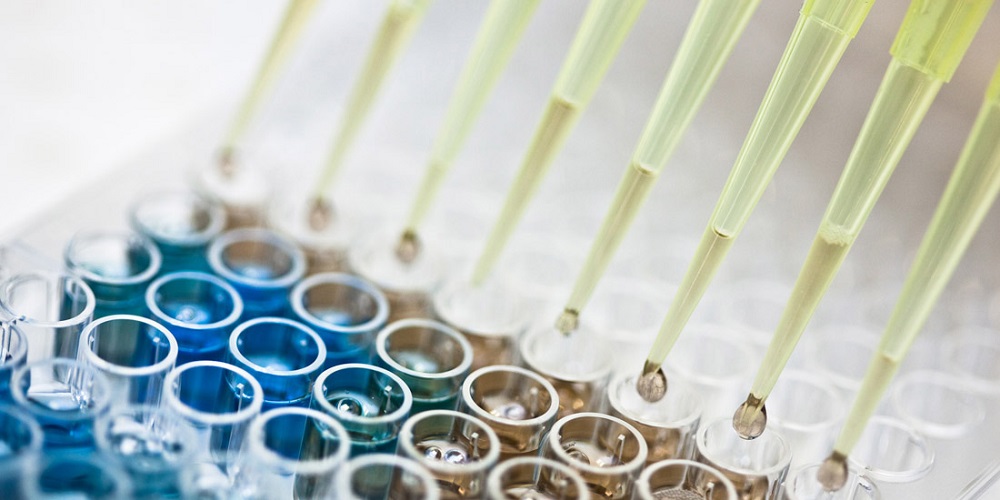
A new Australian developed diagnostic test is set to be rolled out across the country for a little known sexually transmitted infection (STI) which about 400,000 Australians are likely to have.
Similar to chlamydia, the STI Mycoplasma genitalium has been linked with infertility and increases the risk of spontaneous miscarriage and premature birth for pregnant women.
The infection acts like a superbug and is resistant to most available antibiotics.
Up until now, most GPs have not had access to a test to diagnose the disease and have guessed at which class of antibiotics to use to treat the condition, leading to Mycoplasma genitalium having resistance to most antibiotics.
The breakthrough test not only diagnoses the disease, but identifies which treatments will work.
The new Australian-made test is to be rolled out across Australia, the UK and USA and has been developed by SpeeDx in collaboration with the Royal Women’s Hospital.
New research from the Women’s has assessed the effectiveness of the test and found it works in diagnosing not only the infection, but whether it would be resistant to treatment.
“This test is unique in that it diagnoses the disease and also tells us whether it will be resistant to the front line antibiotic treatment,” Professor Suzanne Garland from the Royal Women’s Hospital Centre for Infectious Diseases and University of Melbourne. “Only two antibiotic classes can treat Mycoplasma genitalium and in up to 10 per cent of cases the disease is found to be resistant to the front line medication. This test allows clinicians to not only receive a diagnosis but to know which treatment to pursue.”
Professor Garland said there was growing concern over strains of Mycoplasma genitalium becoming resistant to both antibiotic treatments.
“It is essentially acting like a superbug. Research is showing that at least 50 per cent of people who have Mycoplasma genitalium – this infection is drug resistant, limiting currently available treatment options. It has been 30 years since the last antibiotic was discovered and we desperately need new ones to offer treatments as more diseases become drug resistant.”
The new test is to be made available across Australia and is already in use in five clinics. The Australian made diagnostic is currently going through FDA approval in the US and is being rolled out across the UK.
Approximately 1-2 per cent of the population are likely to have Mycoplasma genitalium. In sexually high-risk groups attending the Melbourne Sexual Health Centre it is up to 10 per cent.
Associate Professor Dr Catriona Bradshaw from Melbourne’s Sexual Health Centre and Monash University said the test was desperately needed.
“Up until now, GPs have not been able to diagnose the condition and often provide general antibiotics to treat it which aren’t effective and has contributed to the disease now being resistant to most types of antibiotic,” A/Prof Bradshaw said.
“This test allows for a fast diagnosis and identifies which treatment will work. This is particularly important for women who can experience serious complications from a delayed diagnosis including infertility, spontaneous miscarriage and early birth.”
SpeeDx CEO, Colin Denver said:
“In order to develop diagnostic tests that have true utility, we need to be working closely with the clinicians on the front-line,” said Mr Denver. “The collaboration with Royal Women’s Hospital in Melbourne and the clinical trials performed, has been able to show that our tests can make a real difference in the fight against antibiotic resistance.”
Chris Williams from Melbourne had never heard of Mycoplasma genitalium when diagnosed at one of the few clinics piloting the test.
"It was concerning to me. " the 38-year-old said."Despite being well-educated on sexual health, the number of unknown factors were quite scary, like, am I a carrier? Or, do I need to disclose this to sexual partners?”
He said as a gay man, he had regular tests for chlamydia, gonorrhoea, syphilis and HIV. He took the new test and found he did have an antibiotic resistant form of Mycoplasma genitalium.
"It meant they could give me one antibiotic for a week to weaken it, then a stronger one," he said. A second test showed he was cured. "I felt relieved," Mr Williams said.
Background
The Women’s has been undertaking work looking at Mycoplasma genitalium and developing diagnostics for the disease over the past 10 years. The Women’s has partnered with SpeeDx to support research into their test.
The Women’s is undertaking further research into the new diagnostic, funded by a SpeeDx and Federal Government Business Innovation Grant to:
- Analysis of the performance of the ResistancePlus Mycoplasma genitalium diagnostic assay across different testing platforms.
- Investigation of Mycoplasma genitalium infection levels and antibiotic resistance levels in women, and correlation with symptoms of pelvic inflammatory disease
- Investigation of Mycoplasma genitalium infections levels and antibiotic resistance levels in asymptomatic men-who-have-sex-with-men
- Analysis of different treatment algorithms for treatment efficacy and reducing antimicrobial resistance.
The Women's Centre for Infectious Diseases is funded by an a NHMRC Program Grant. Research into Mycoplasma genitalium is funded by a Federal Government Innovations Connections Grant from the Department of Industry, Innovation and Science.
Read related content from the Women's
-
About STIs
There are a number of different sexually transmitted infections or STIs. They are transmitted though blood, other body fluids or skin-to-skin contact and their impact can range from mildly irritating to devastating.
Learn more -
 Our researchers investigate preventing preterm birth
Our researchers investigate preventing preterm birthPreventing preterm birth, the leading cause of neonatal and infant death and disability, is a priority for research teams worldwide including at the Women's
Learn more